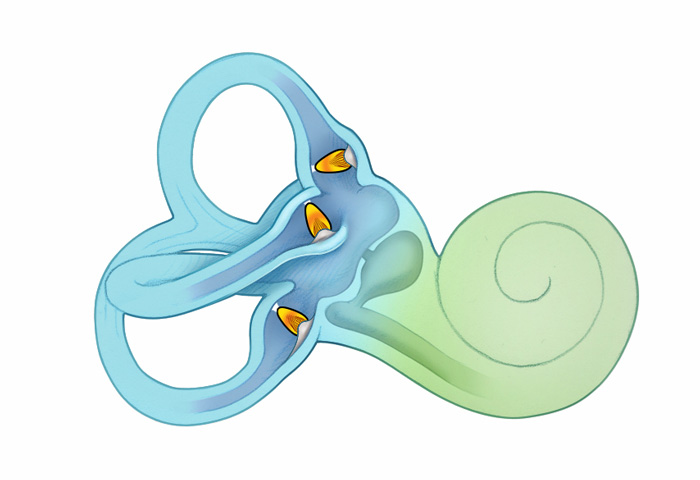New Treatment Option for Meniere’s Disease

Ménière’s disease is a condition of the inner ear which causes episodes of vertigo and hearing loss. The unpredictability of Meniere’s disease, with its bouts of debilitating dizziness and hearing loss, can be disorienting and interrupt an individual’s life, leading to fatigue, stress, and anxiety.
Current treatment in severe cases involves injecting gentamicin, an ototoxic (toxic to the ear) antibiotic, into the eardrum. This treatment reduces the balancing function of the affected ear, allowing the other, healthy ear, to handle balance functions. It effectively reduces vertigo attacks, but the ototoxic nature of the treatment risks permanent hearing loss and has limited the use of gentamicin as a treatment for Meniere’s disease.
In a new study, Patel et al. investigated the efficacy of using methylprednisolone, a corticosteroid, as an alternative to gentamicin to reduce vertigo. Using a corticosteroid as opposed to an antibiotic is not ototoxic, reducing the likelihood of hearing loss. The drugs were measured on their effectiveness in reducing vertigo and maintaining hearing ability. This study showed similar effects in vertigo reduction between the methylprednisolone and gentamicin and fewer patients experienced clinically meaningful reductions in hearing ability when treated with the methylprednisolone. Vestibular function was also tested and as expected the corticosteroid preserved vestibular function while the ototoxic antibiotic damaged the inner ear. The results of the study suggest methylprednisolone injections to be a safe and effective treatment for Ménière’s disease as an alternative to gentamicin. Both treatments are available to clinicians and patients and should be assigned on a case-by-case basis. For example, gentamicin may require fewer repeat treatments, though it comes with an increased risk of hearing loss, so someone unconcerned with hearing loss living in a remote location may prefer gentamicin injections.
If you suffer from Meniere’s disease, request an appointment with Dr. Hegarty to discuss your treatment options.
